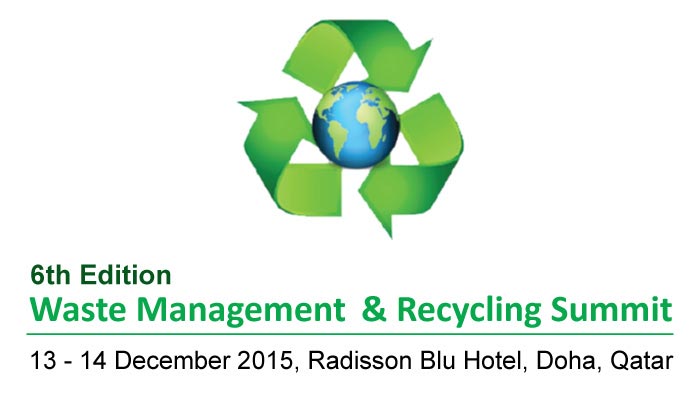The sixth ‘Waste Management and Recycling Conference 2015’ to be held on December 13 and 14 in Doha will highlight the importance of recycling to significantly reduce waste and the use of landfill in the region and Qatar.
More than 150 government officials, researchers, and environmental experts from Qatar, the Middle East and other countries will be tackling the current scenario of waste management and the roadmap for the future.
“Qatar aims at raising the recycle share from 8% to 38% of solid waste to reduce landfill to 53% and converting waste to energy,” said global provider of business intelligence solutions Nispana, which will host the event.
“The energy consumption is must, as the energy resources are finite, and their consumptions are increasing at alarming rates,” it added.
The country generates a total of 1.6 to 1.8kg per day per person of solid waste which could reach 19,000 tonnes per day in 2032, according to Nispana.
Thirty percent waste is generated by households and the remainder is comprised of construction and demolition materials. Only 3% is recycled and 4% is incinerated while the remaining is disposed into landfills.
The country also depends on desalted sea water, which consumes extensive amounts of energy, and is produced by using the least energy efficient desalting system.
Qatar has already committed to enforcing international standards for environmental protection when designing and implementing its industrial projects.
However, the country must also commit to making its future path of development compatible with the requirements of protecting and conserving the environment.
Landfill operators and representatives of recycling firms, IT companies, banks, academic and research institutions and hospitals, among others have been invited to attend the conference.
The two-day event, which will be held at Radisson Blu Hotel, is co-hosted and supported by the Ministry of Municipality and Urban Planning and Public Works Authority (Ashgal).
Nispasna said attendees will have the opportunity to meet, network and exchange ideas with international experts to learn the best practices; understand the environmental and health impact of waste; get educated on the different types of waste and waste segregation; identify the latest waste management, recycling solutions and technology; and learn how to recycle, reduce, reuse and recover, among others.

